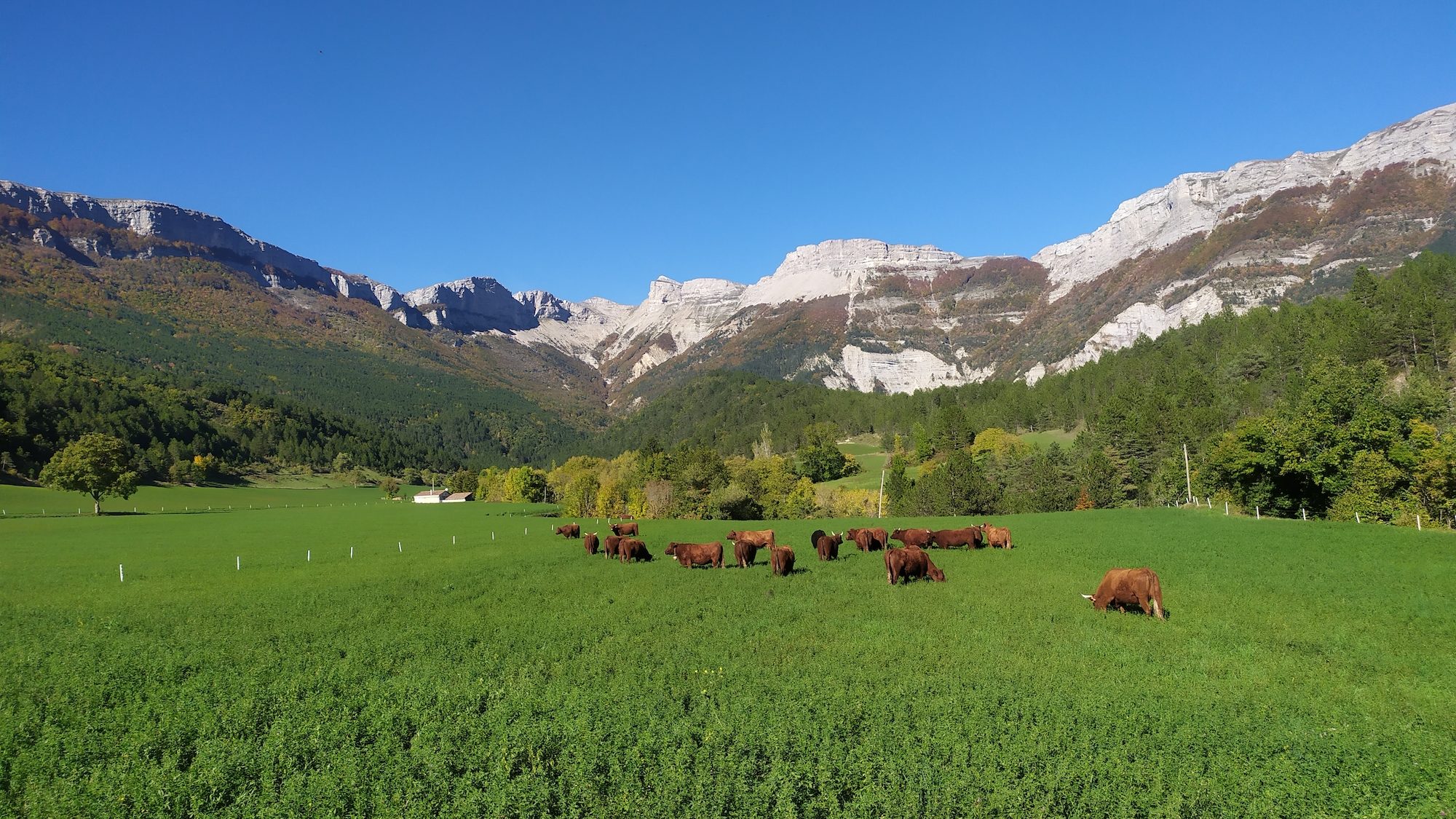Agroecological transition in mid-mountain areas: the Quint valley
Début du projet : 2021Mountain agriculture is facing a number of challenges: climate change, soil degradation, conflicts of use and the need for reconnection between different stakeholders and with the environment. This doctoral thesis explores agroecology as a solution to these major challenges, by examining the dynamics accompanying this type of transition in the Vallée de Quint, in the Drôme region.
 @ Aubéline Bellom
@ Aubéline Bellom
The aim of this thesis is to understand what happens at the level of the territory and its stakeholders when agroecological practices are deployed, in other words, agricultural practices that are more respectful of the environment, the territory and people. The methodology used is that of territorial ecology, which explores the material and immaterial flows that traverse and characterize a territory (territorial metabolism).
The aim of this approach is to analyze the interrelationships between stakeholders, resources and the environment, in order to gain a better understanding of territorial dynamics. This enables us to understand how it is possible to achieve sustainable management of space, but also to reflect on the “capabilities” and resilience of the valley’s inhabitants and the territory itself.
In short, the aim is to identify and support the agro-ecological transition in the mid-mountain valley of Quint, in the Drôme region.
Thesis Diois Vercors Climate and ecological transitions Planning, public policy and governance Populations and territories
